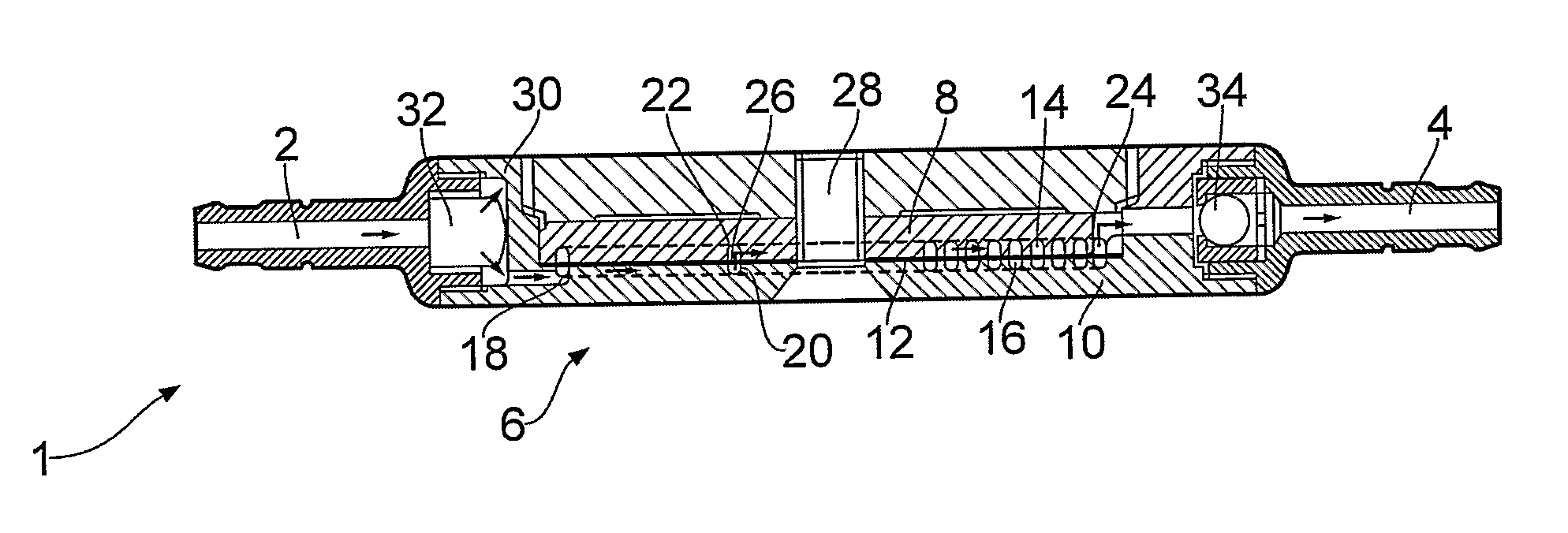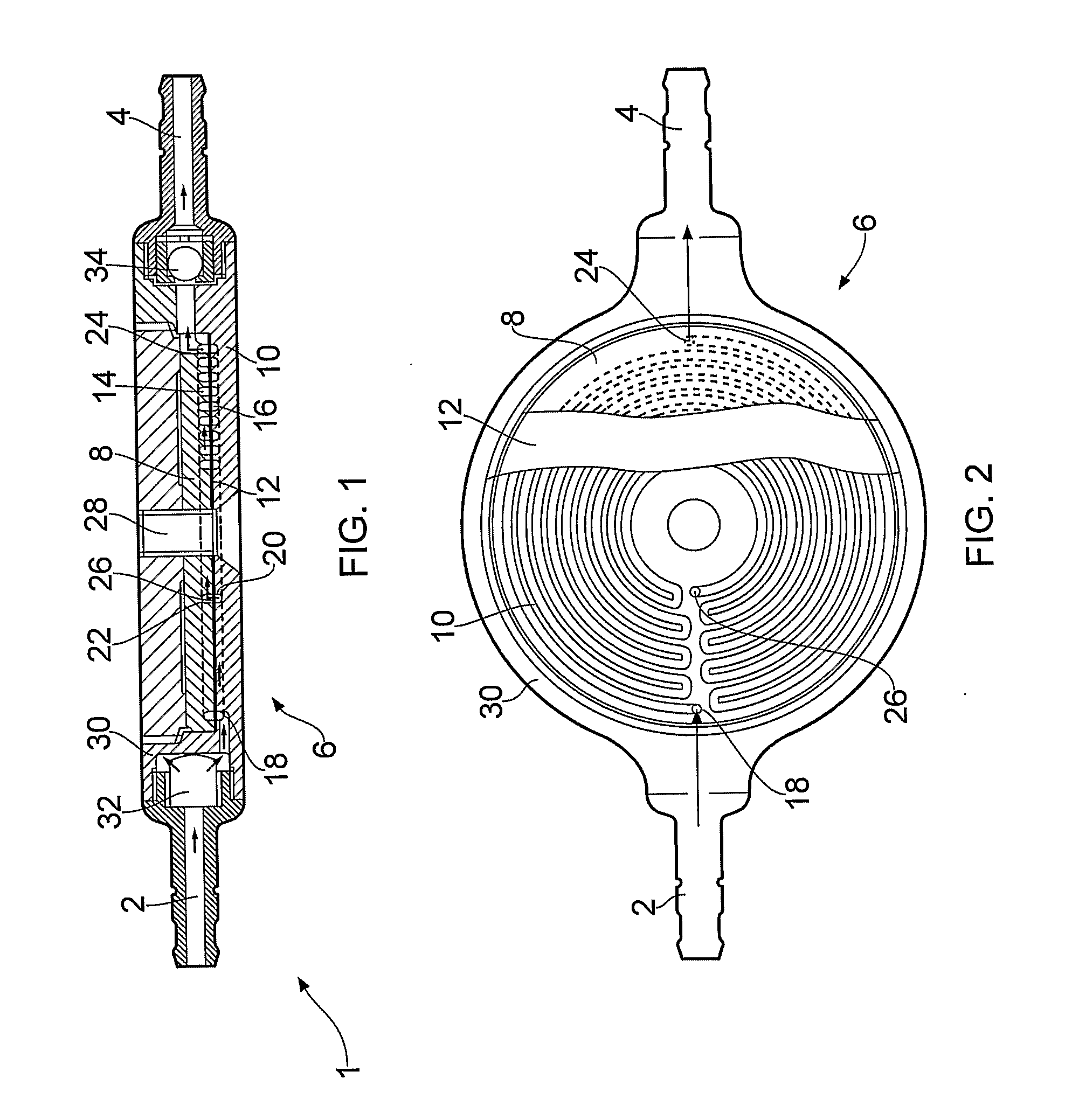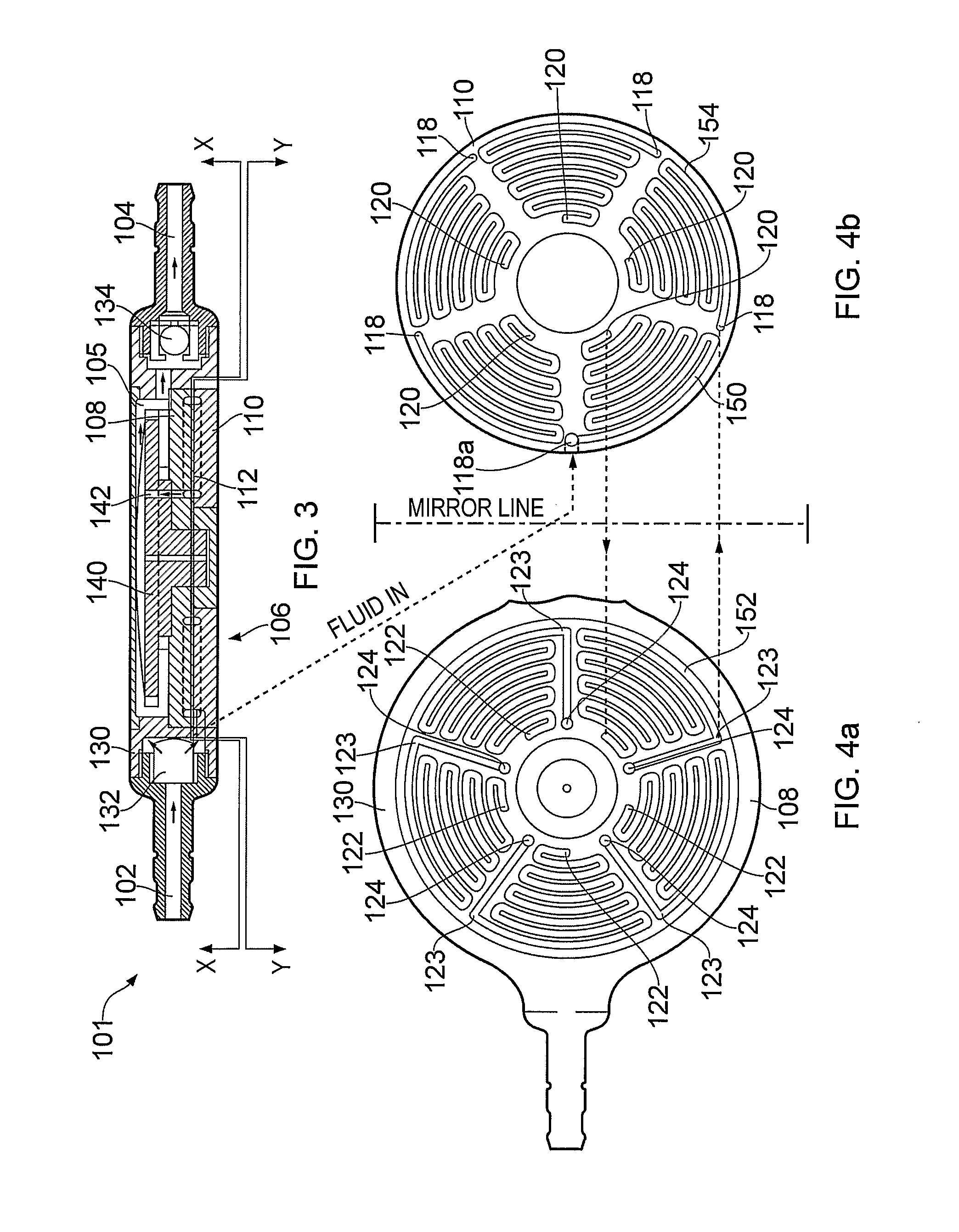Device for Controlling the Rate of Flow of a Fluid
a technology of fluid flow and control device, which is applied in the direction of flow monitors, intravenous devices, other medical devices, etc., can solve the problems of loss of a wide range of physical and mental faculties, increased challenge, and abnormal pressure in the brain
- Summary
- Abstract
- Description
- Claims
- Application Information
AI Technical Summary
Benefits of technology
Problems solved by technology
Method used
Image
Examples
Embodiment Construction
[0046]With reference to FIGS. 1 and 2, a device 1 for diverting fluid from the ventricles of the brain comprises an inlet 2, an outlet 4 and a resistance member 6 operatively coupled between the inlet 2 and the outlet 4. The resistance member 6 comprises an upper member 8, a lower member 10 and a substantially circular plate 12 sandwiched between the upper and lower members 8, 10. The upper and lower members 8, 10 each have a substantially circular, planar surface in contact with the plate 12. The planar surfaces of the upper and lower members 8, 10 each comprise a groove or channel, which forms a continuous closed resistance tube 14, 16 when the grooved surface is in abutment with the plate 12. The lower resistance tube 16 formed by the lower member 10 follows a convoluted flow path from a fluid entry point 18, at a radially outer position on the planar surface of the lower member 10, to a fluid exit point 20, at a radially inner position on the planar surface of the lower member 1...
PUM
 Login to View More
Login to View More Abstract
Description
Claims
Application Information
 Login to View More
Login to View More - R&D
- Intellectual Property
- Life Sciences
- Materials
- Tech Scout
- Unparalleled Data Quality
- Higher Quality Content
- 60% Fewer Hallucinations
Browse by: Latest US Patents, China's latest patents, Technical Efficacy Thesaurus, Application Domain, Technology Topic, Popular Technical Reports.
© 2025 PatSnap. All rights reserved.Legal|Privacy policy|Modern Slavery Act Transparency Statement|Sitemap|About US| Contact US: help@patsnap.com



